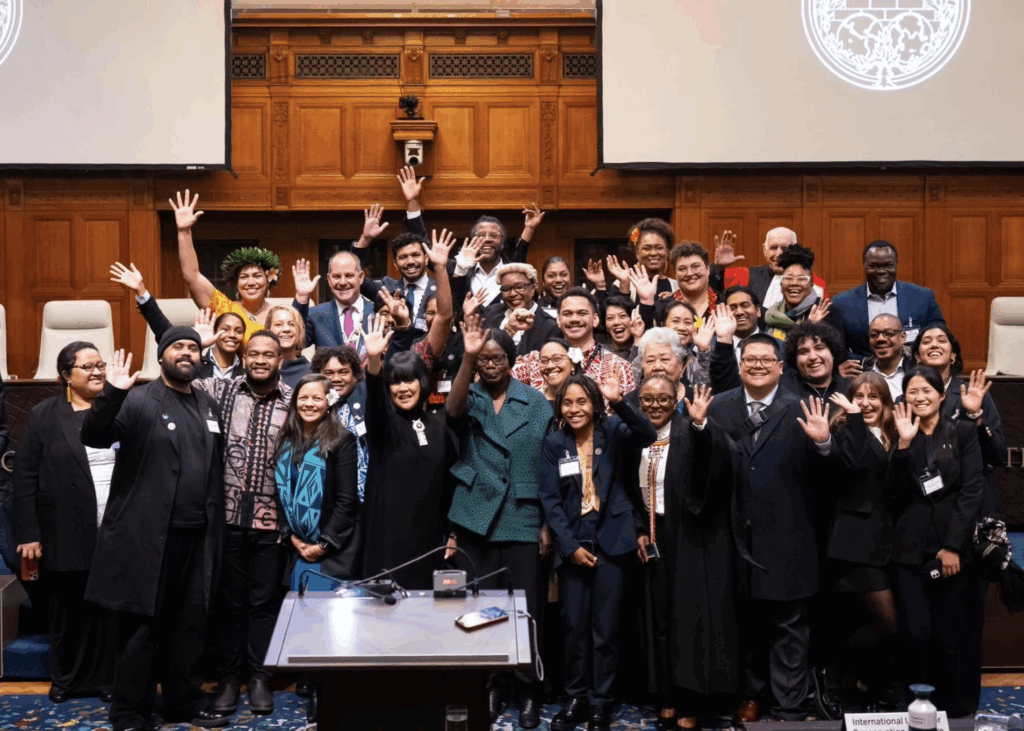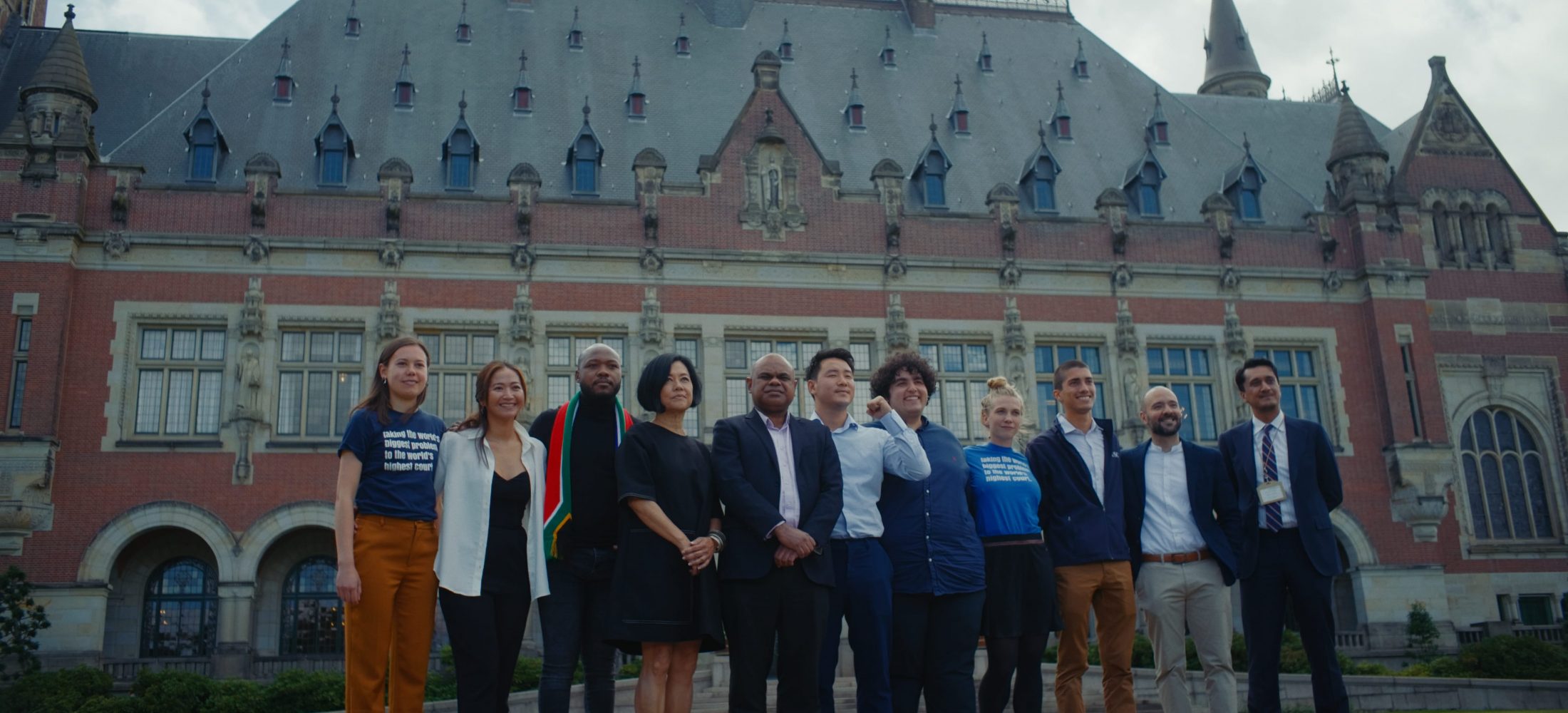What is it about?
Faced with the realities of the adverse impacts of the climate crisis and the lack of urgent action, the #ClimateICJAO campaign aims to seek legal clarity from the International Court of Justice on what state obligations are to address the climate crisis. It aims to centre human rights and the rights of future generations within the climate discussion by urging the ICJ to issue a holistic opinion that pushes for greater ambition, accountability and fairness in how we deal with the climate crisis. The route of the campaign requires securing the majority support of countries at the UN General Assembly for the ICJ to issue the opinion.
Who and where has it started?
This campaign was started by 27 law students from the University of the South Pacific who were asked the question of how international law could be used as a vehicle to help address the climate crisis. The campaign to seek an ICJ advisory opinion was suggested as one of the most ambitious proposals and after the indication of support from the Vanuatu government, the campaign kicked off to secure the necessary support from countries at the UN for a resolution calling for an ICJ advisory opinion on climate change and human rights.
What is the International Court of Justice?
The International Court of Justice, or ICJ, is the highest court in the international legal system. The ICJ was established under the Charter of the United Nations. The ICJ has two kinds of jurisdiction: contentious and advisory.
Contentious ICJ cases are brought by national governments in order to settle disputes between nations. Advisory opinion’s on the other hand are legal advice provided to the United Nations or a specialized agency by the International Court of Justice.
What is an ICJ Advisory Opinion?
- The UN General Assembly and the Security Council may request an ICJ advisory opinion on “any legal question” while other UN organs and agencies may request an advisory opinion on “legal questions arising within their scope of activities”.
- Individual countries cannot request an advisory opinion from the ICJ directly.
- Unlike judgments of the ICJ in contentious proceedings, advisory opinions are not binding at law. Nonetheless, due to the status of the ICJ as the highest court in the world they “carry great legal weight and moral authority. They are often an instrument of preventive diplomacy and help to keep the peace. In their own way, advisory opinions also contribute to the clarification and development of international law and thereby to the strengthening of peaceful relations between states.” (Professor Philip Sands QC, 2015).

The historic Resolution
Never before has the UN General Assembly adopted a request with such an overwhelming majority for an Advisory Opinion from the International Court of Justice.
On the 29th of March 2023, the UNGA unanimously adopted Resolution 77/276 calling on the ICJ to issue an advisory opinion on the obligations of states relating to climate change. This was a historic achievement for us because this was the first advisory opinion request that went through the UNGA by consensus.
- ABC: UN backs landmark Pacific-led resolution clearing way for International Court of Justice advisory opinion on climate obligations
- WASHINGTON POST: How a small island got world’s highest court to take on climate justice
- NEW YORK TIMES: Can Nations Be Sued for Weak Climate Action? We’ll Soon Get an Answer.
- ALJAZEERA: UN votes to ask world court to rule on countries’ climate duties
- ZEIT ONLINE: Vanuatus Sieg gegen die Großen

The Biggest court case
With over 100 countries participating, this has become the biggest case in history and is set to clarify the legal responsibilities of countries regarding climate change.
Written Submissions
On 22 March 2024, the International Court of Justice received the highest number (91) of written statements to have been filed by States and authorised international organisations, in an advisory proceedings on any matter.
Written Comments Submissions
On 15 August 2024, the International Court of Justice received 62 Written Comments in response to 91 Written Submissions.
Oral Submissions
From 2 to 13 December 2024, the International Court of Justice heard a total of 103 Oral submissions from 97 counties and 11 International Organisations. This was the largest amount of oral submissions ever to be heard in an advisory opinion proceedings – keeping its record in being the biggest climate case in history.
The Advisory Opinion is anticipated to be delivered in 2025.
- TAGESSCHAU: Höchstes UN-Gericht befasst sich mit Klimaschutz
- EURONEWS: The world’s ‘biggest’ legal case has just begun – and it is all about climate change
- NEW YORK TIMES: What Can the World’s Top Court Do About Climate Change?
- CEIL: Historic Climate Justice Hearings Begins at the World’s Highest Court
- AP: A landmark climate change case opens at the top UN court as island nations fear rising seas
